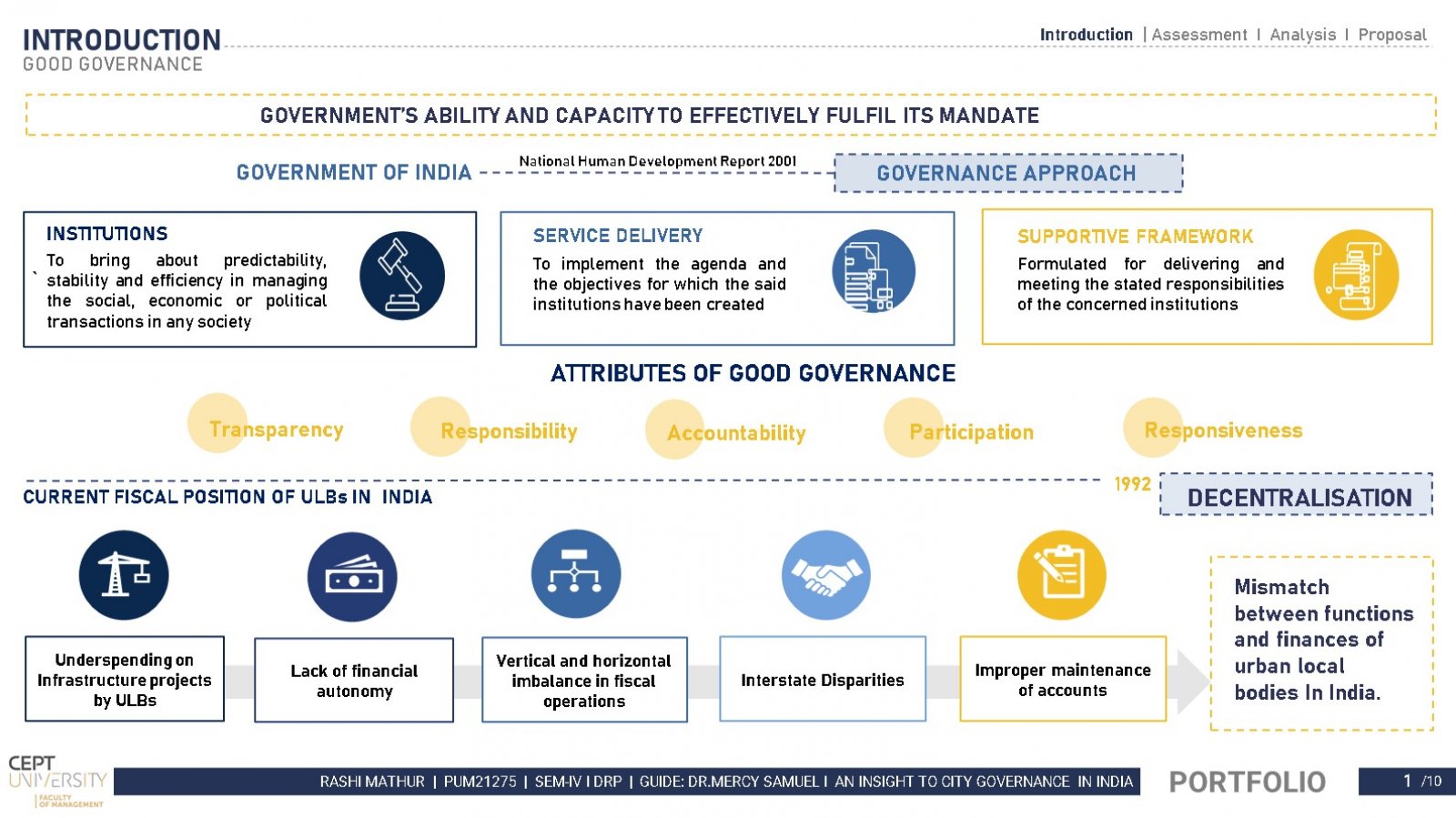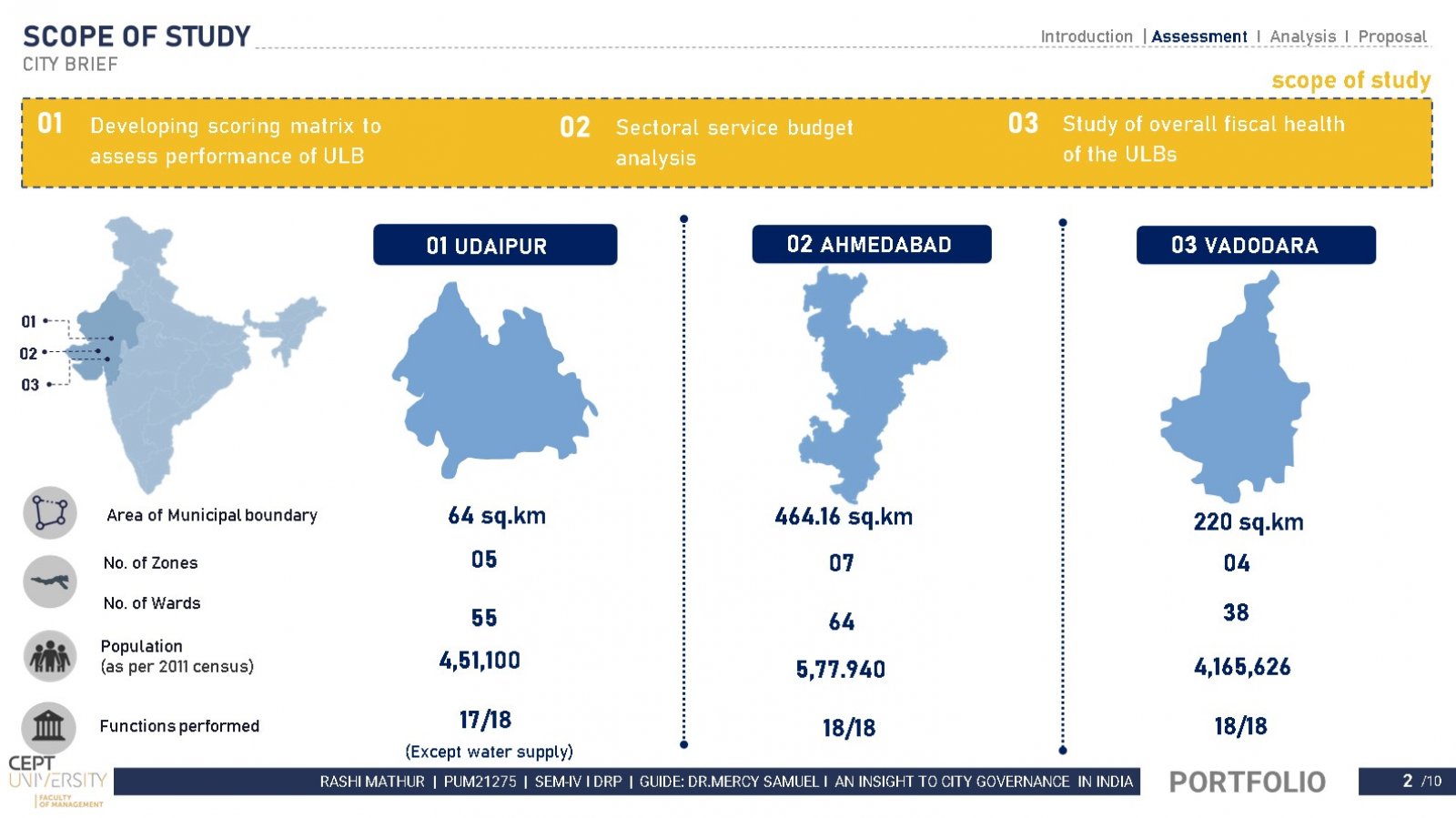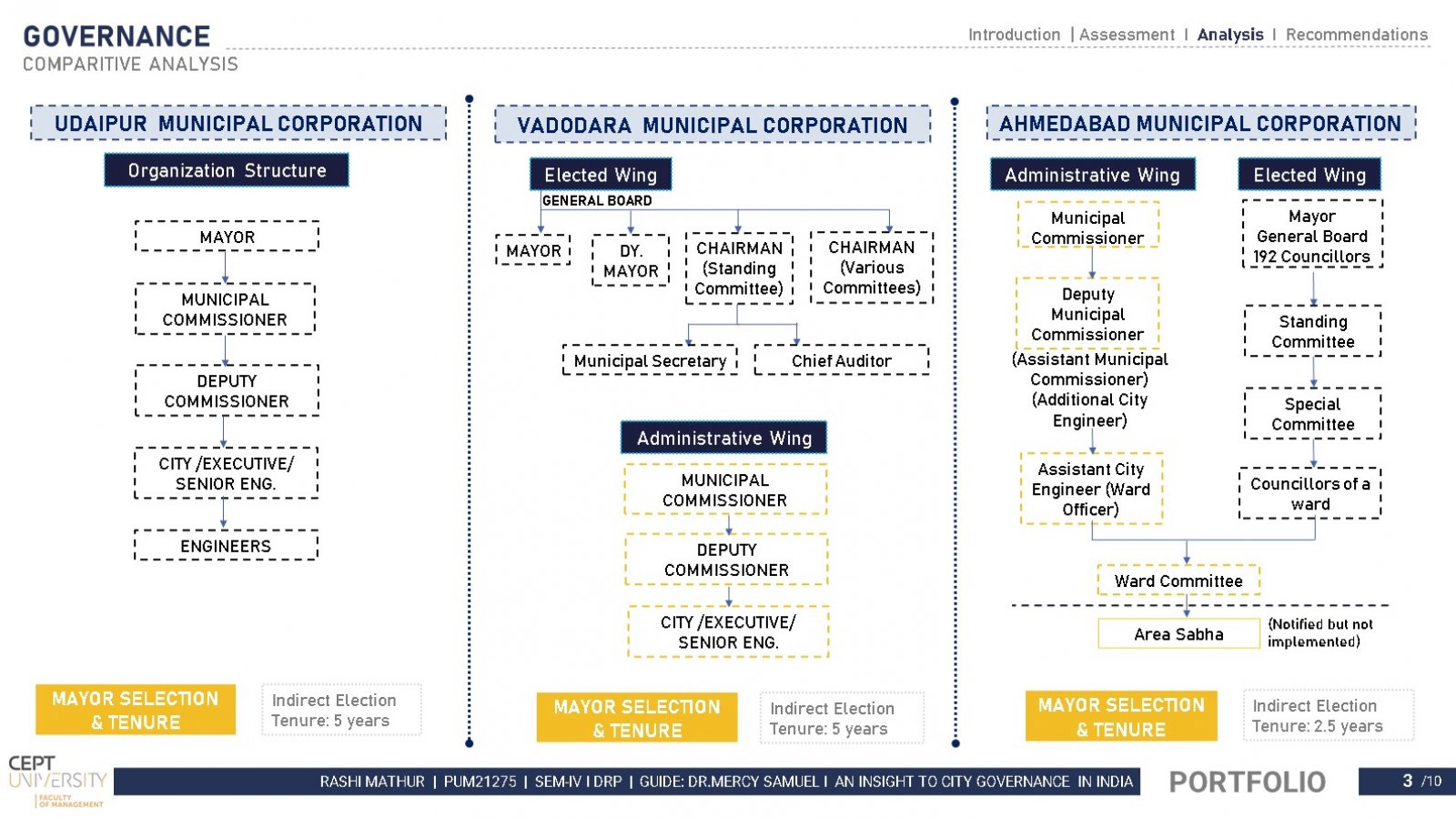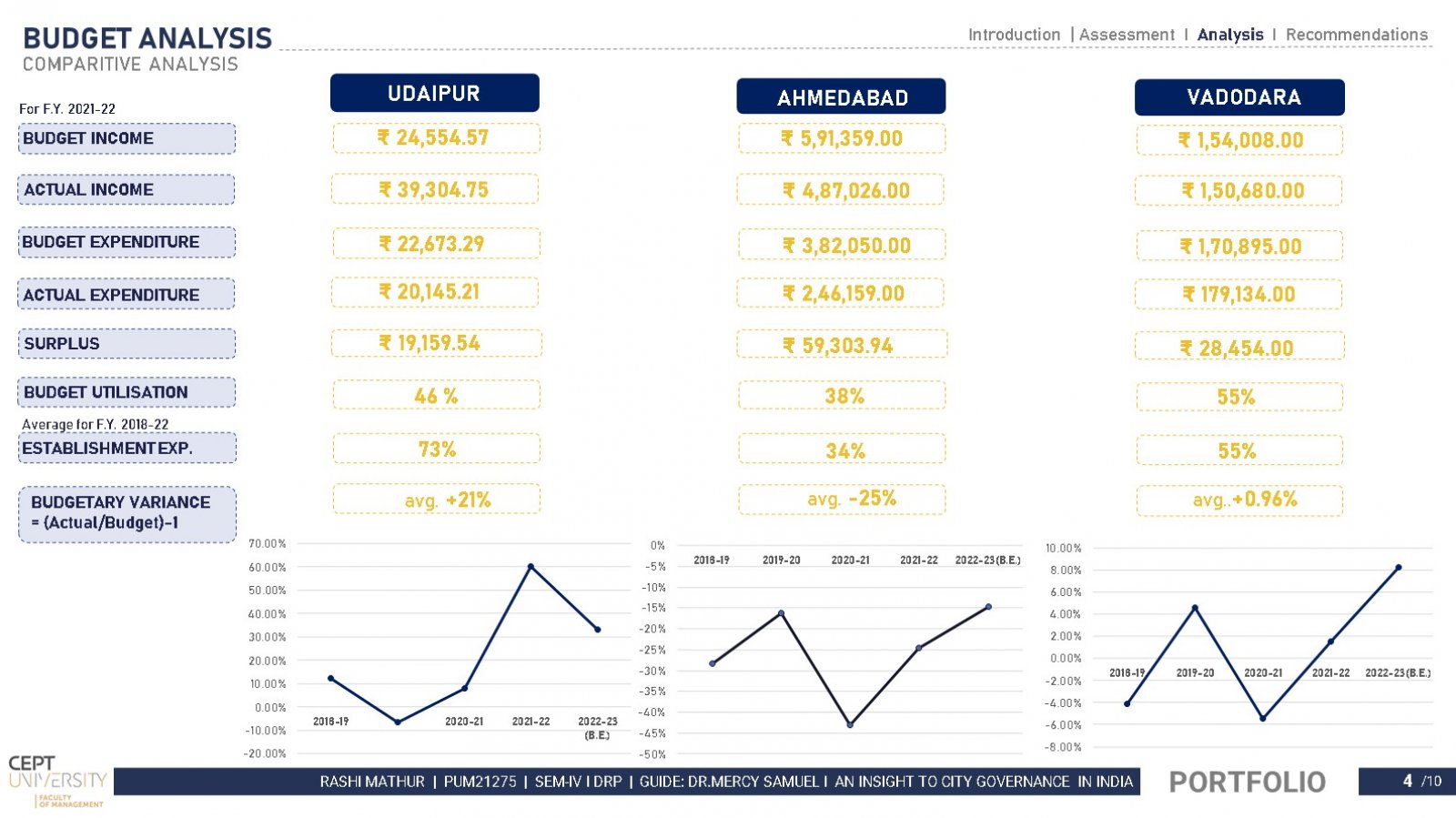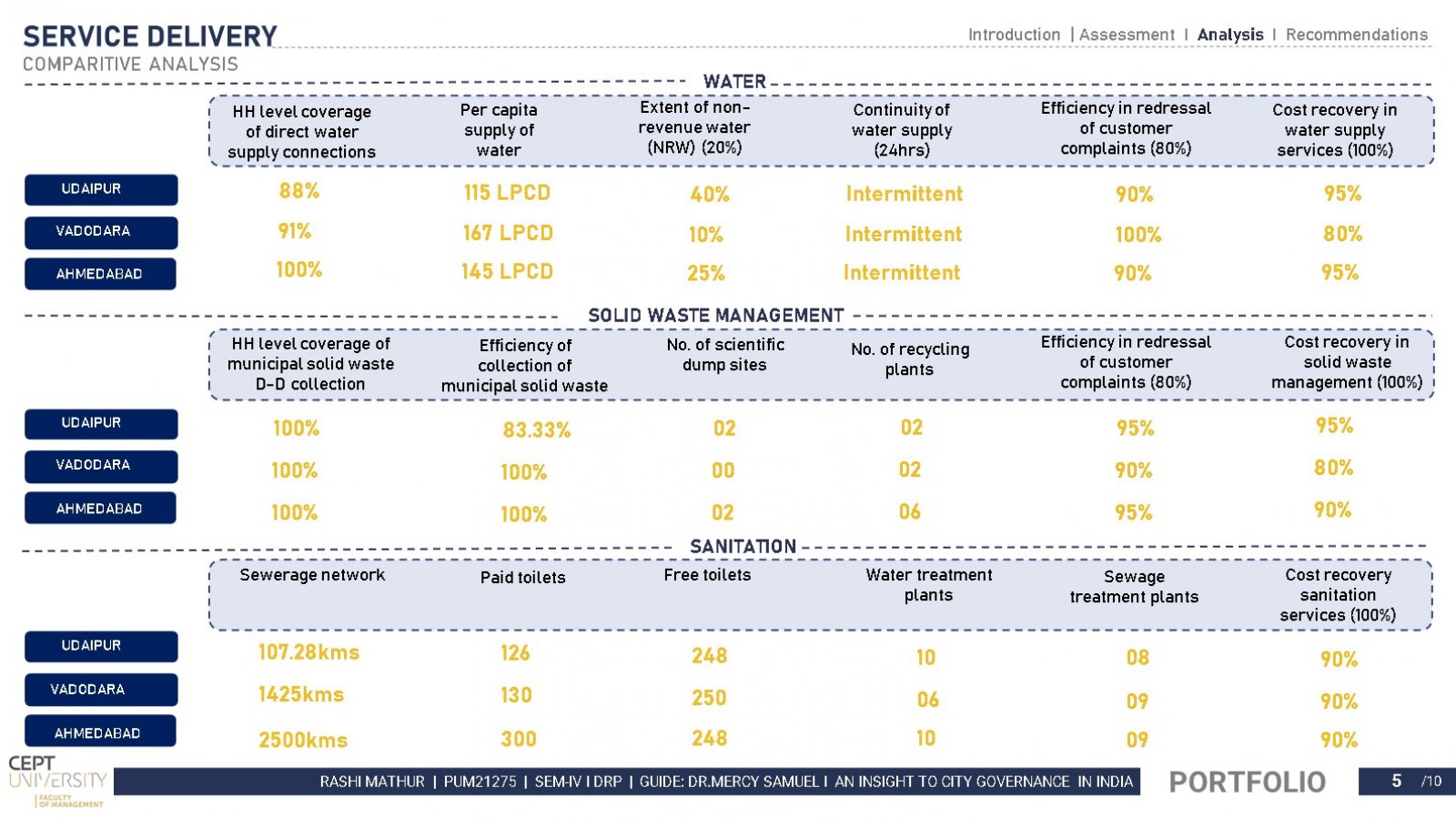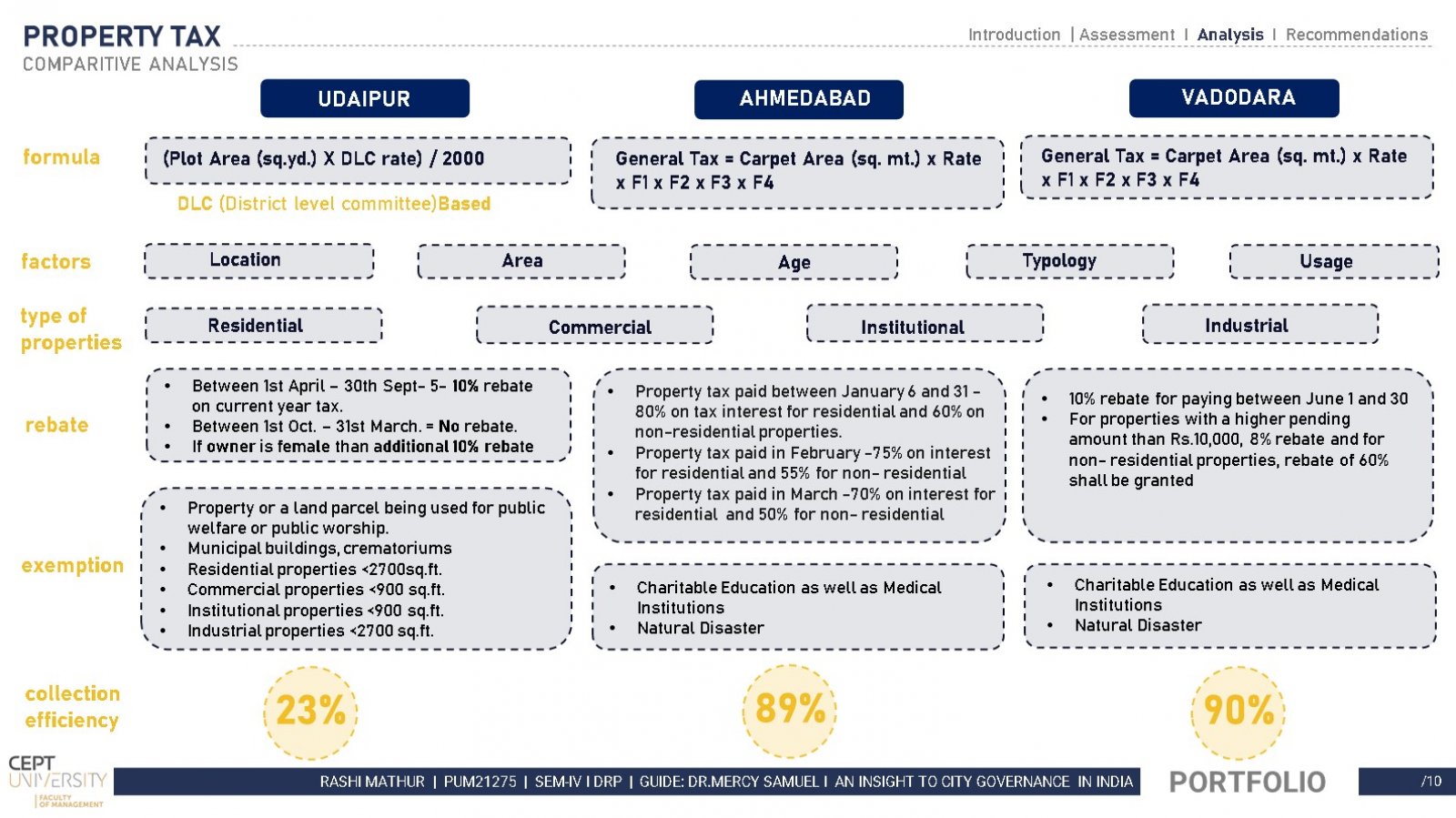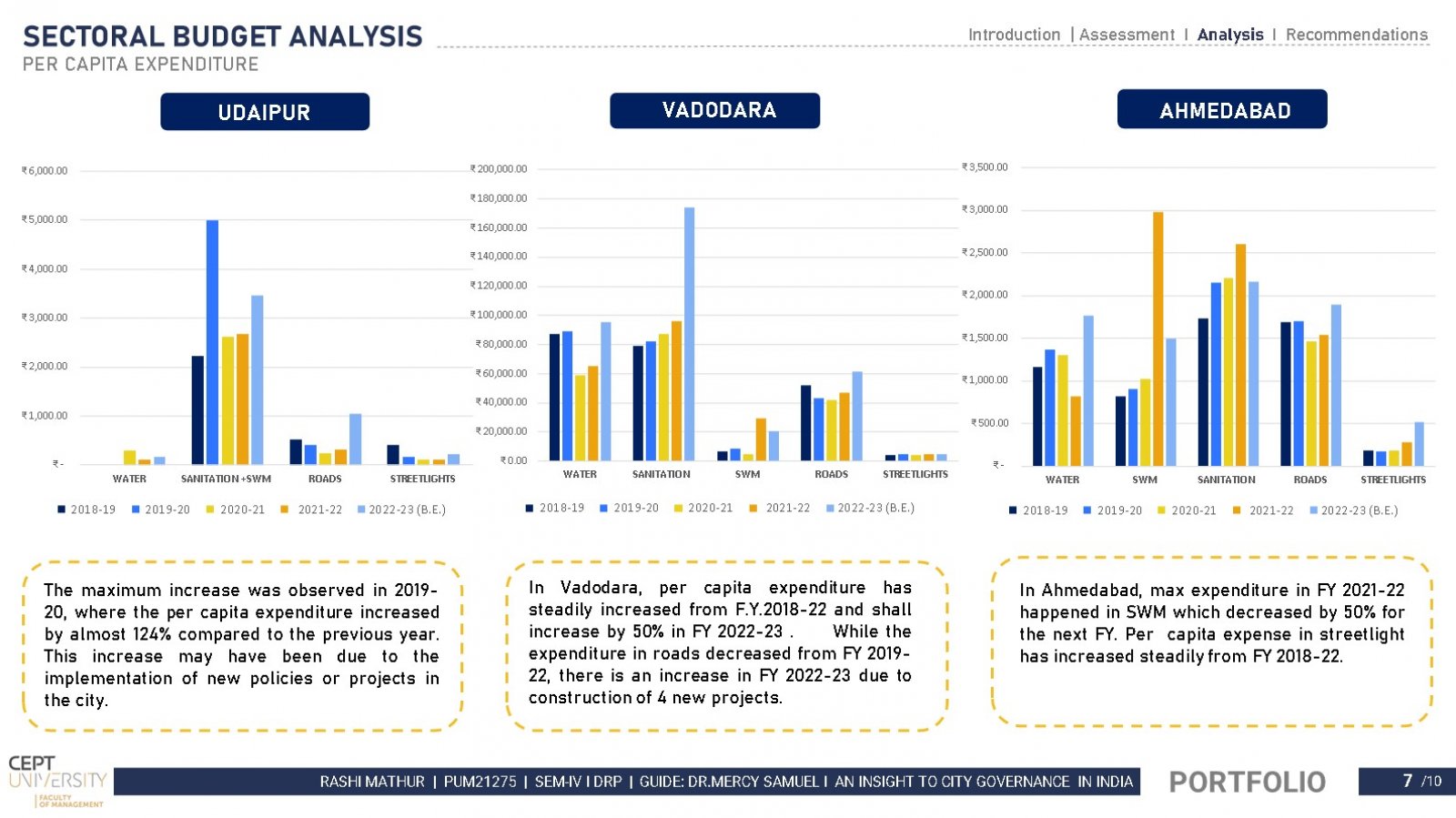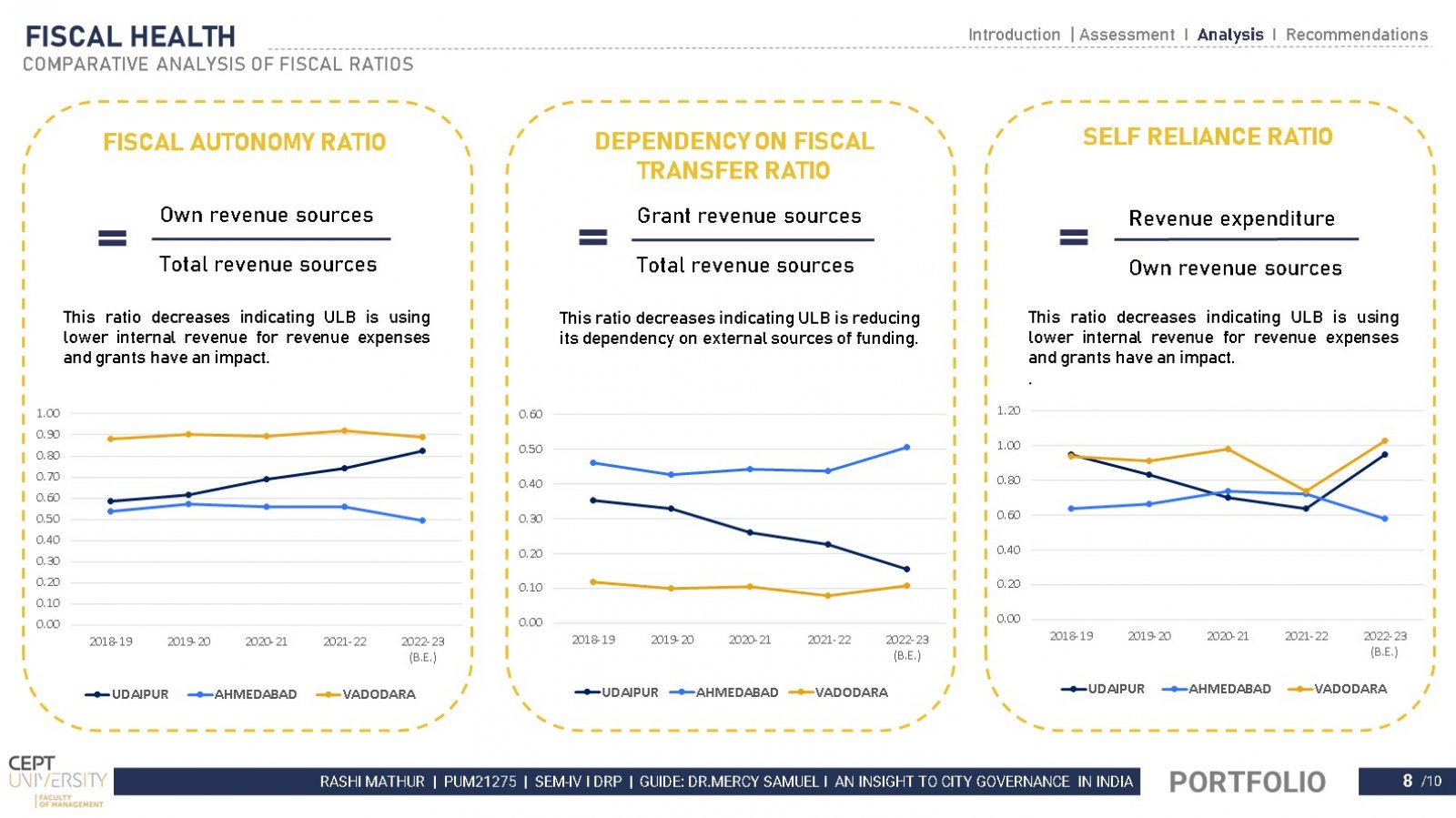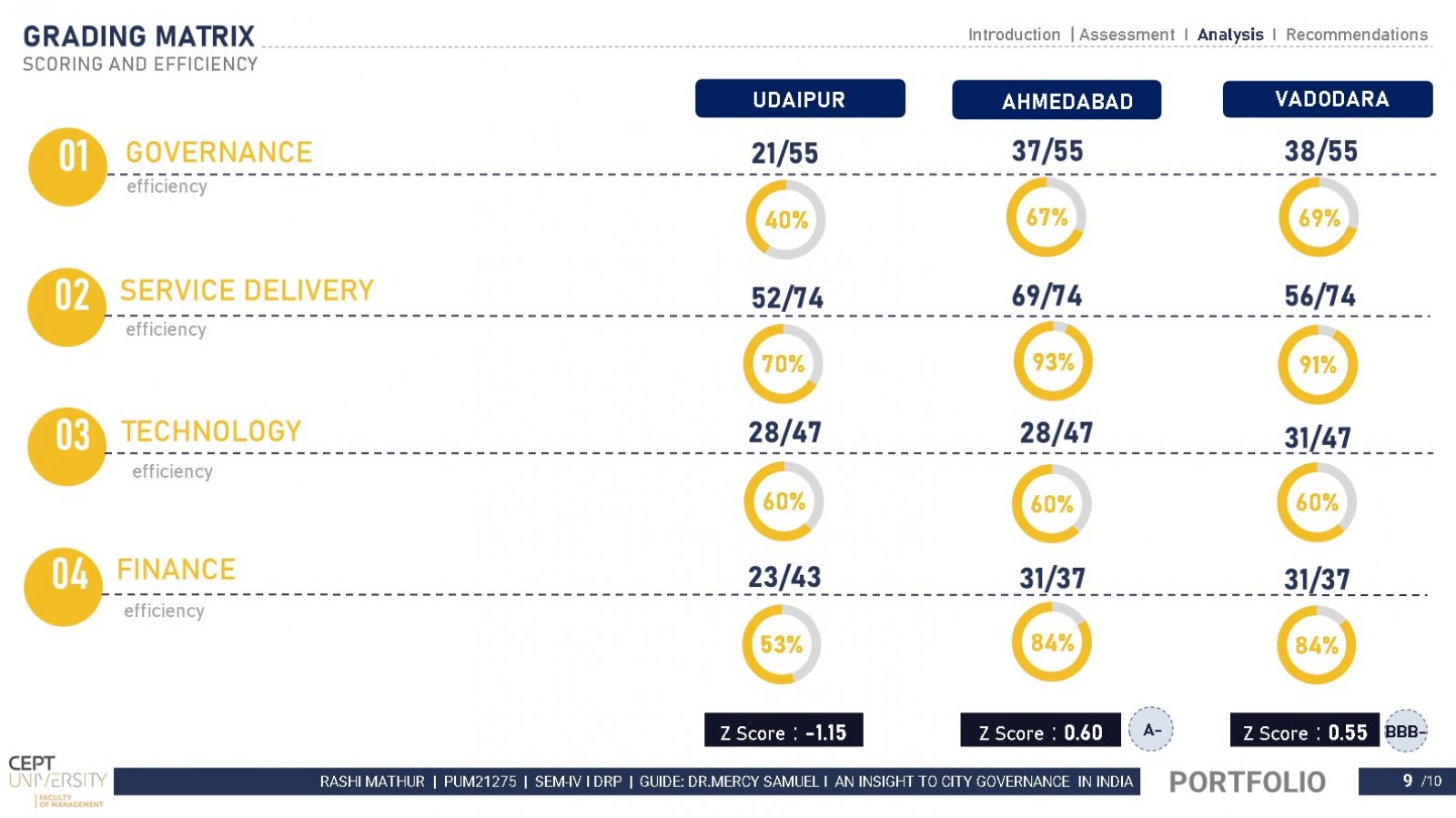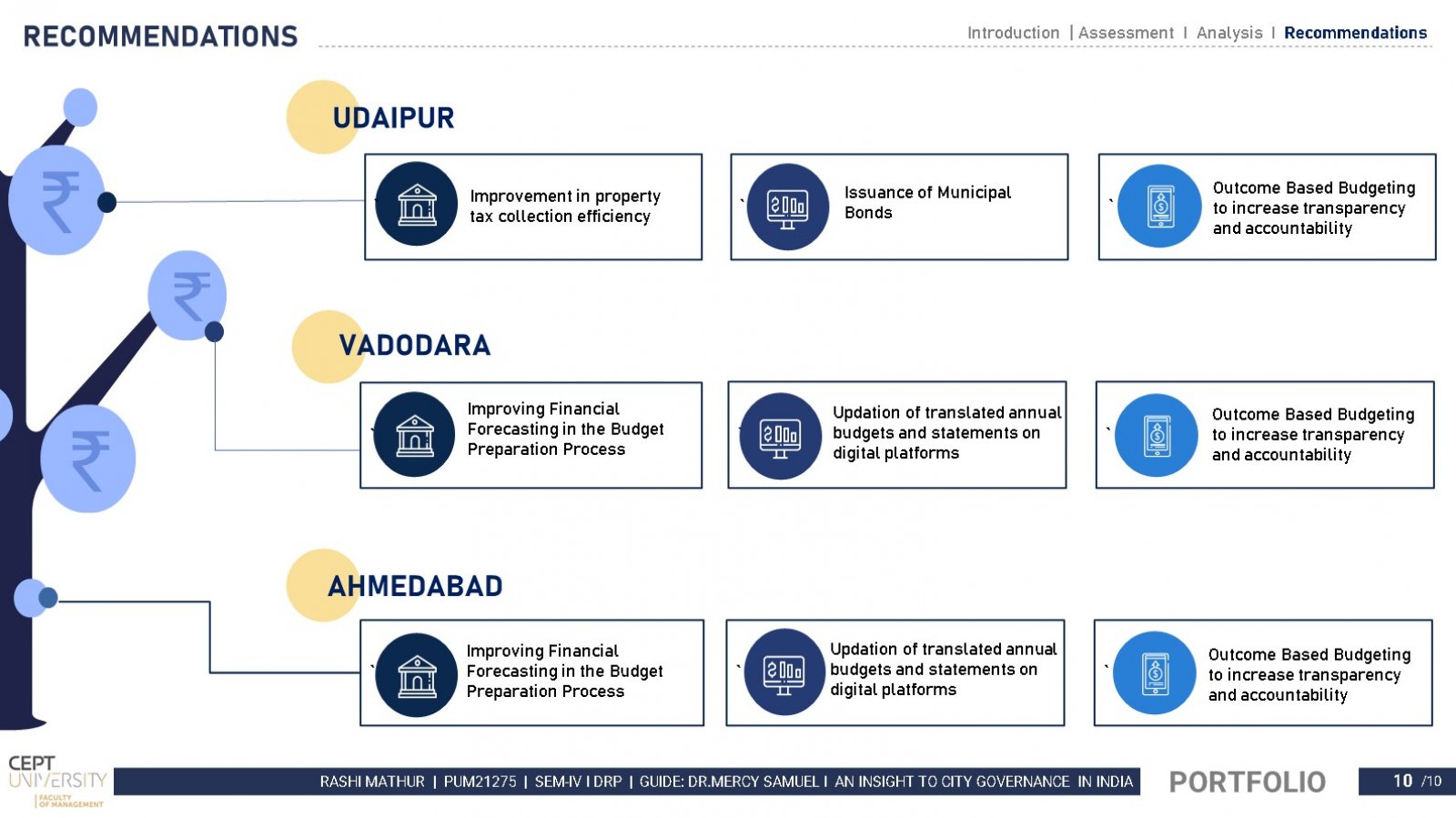Your browser is out-of-date!
For a richer surfing experience on our website, please update your browser. Update my browser now!
For a richer surfing experience on our website, please update your browser. Update my browser now!
Urban governance in India involves collaboration between the government and stakeholders for managing and financing urban regions. The Indian government's ability and capacity to effectively fulfill its mandate is based on three key pillars: institutions, service delivery, and a supportive framework. The 74th Amendment Act of 1992 gave constitutional status to Urban Local Bodies and listed 18 functions under the 12th Schedule to be carried out by the ULBs. However, the act is non-assertive and indicative in nature as it leaves a lot of decision-making power to state governments regarding the formation, composition, and functioning of urban local bodies. Hence, to better understand the status of urban governance in India, an assessment framework was devised to evaluate the cities with a financial lens. The aim of the study was to evaluate the degree of decentralization and devolution of authority of ULBs, as well as citizen engagement and satisfaction with technology interventions for service delivery in 3 smart cities; Ahmedabad, Udaipur and Vadodara.
